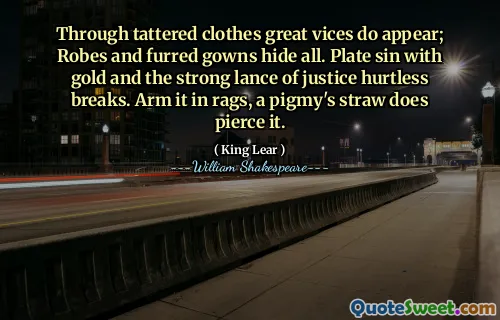In jest, there is truth.
The phrase "In jest, there is truth," which comes from Shakespeare's "King Lear," suggests that humor often reveals deeper insights about reality. Jokes and playful comments can allow people to express truths that might be difficult to convey directly. Through satire and comedy, individuals often address serious topics and critique societal norms without overt confrontation.
This idea underscores the complexity of human communication, where the line between humor and honesty blurs. Shakespeare’s exploration of this theme in "King Lear" showcases how the fool’s remarks, steeped in jest, illuminate the folly of the characters’ actions and decisions, ultimately bringing to light the tragic aspects of their situations.






